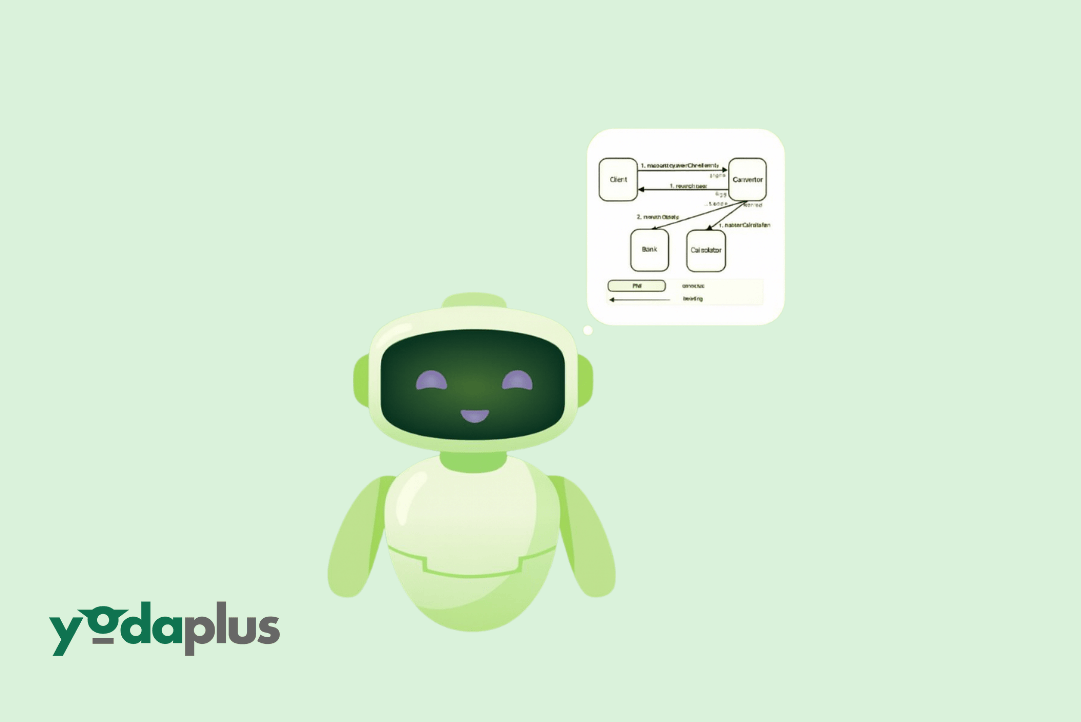
Coordination Protocols for Multi-Agent Ecosystems Introduction
August 19, 2025 By Yodaplus
Modern Artificial Intelligence is no longer just about single systems making decisions. As industries move towards autonomous AI and multi-agent systems, the ability of different AI agents to coordinate becomes critical. In such environments, agents must share goals, exchange information, and adapt to complex conditions. This is where coordination protocols play an essential role.
By defining how autonomous agents and workflow agents interact, coordination protocols help ensure collaboration, prevent conflict, and improve efficiency. From AI in logistics to financial modeling and Artificial Intelligence in business, multi-agent ecosystems are shaping the future of automation.
Why Coordination Matters in Multi-Agent Systems
A single AI agent can handle specific tasks like data analysis or decision support. But when multiple agents work together, challenges arise. Agents need to share resources, align objectives, and avoid duplication of effort.
For example:
-
In AI-powered automation, production line agents coordinate tasks to avoid delays.
-
In AI in logistics, delivery agents must work together to optimize routes.
-
In agentic AI frameworks, decision-making depends on structured collaboration rather than isolated outputs.
Without coordination protocols, these systems risk inefficiency or even failure.
Types of Coordination Protocols
Different multi-agent environments use protocols tailored to their needs.
1. Negotiation Protocols
Agents negotiate to divide tasks, resolve conflicts, or allocate resources. In Artificial Intelligence in business, negotiation ensures fair workload distribution across departments.
2. Auction-Based Protocols
Agents bid for tasks based on capability or priority. For example, in AI-driven analytics, the agent best suited to handle large-scale data mining might take on the most complex tasks.
3. Contract Net Protocol (CNP)
A popular method where a manager agent assigns tasks and other agents submit proposals. This is common in autonomous systems where efficiency and speed are critical.
4. Consensus Protocols
Agents align on a decision by voting or shared evaluation. This is vital in financial contexts where risk analysis and valuation methods must be accurate and agreed upon.
The Role of MCP and Agentic Frameworks
Frameworks like MCP and agentic frameworks provide the foundation for building coordination rules. These frameworks make it possible for agents to follow shared protocols, track tasks across workflows, and maintain accountability.
By standardizing interaction, intelligent agents in multi-agent systems avoid miscommunication and maintain regulatory adherence in sectors such as compliance, finance, and AI in logistics.
Coordination in Workflow Agents
In ecosystems with workflow agents, tasks must pass smoothly from one stage to the next. For example:
-
In a supply chain, one agent processes shipping data while another manages risk assessment.
-
In AI workflows, an agent performing deep learning classification sends outputs to an NLP agent for interpretation.
Coordination protocols ensure seamless integration of tasks, reducing downtime and avoiding errors.
Benefits of Coordination Protocols
-
Efficiency – Faster execution of AI applications across industries.
-
Scalability – Ability to expand ecosystems as more agents are added.
-
Reliability – Reduced errors in autonomous systems.
-
Innovation – Stronger integration of generative AI and conversational AI tools.
-
Compliance – Better tracking of Responsible AI practices and risk frameworks.
Real-World Applications
-
AI in Logistics: Agents coordinate delivery routes, fuel usage, and pollution prevention measures.
-
Artificial Intelligence in Business: Marketing and analytics agents share data for faster decision-making.
-
Financial Ecosystems: AI-driven analytics supports smarter reporting, linking audit reports with real-time forecasting.
-
Autonomous AI Security: Protocols help manage cyber risks by ensuring AI risk management is consistent across agents.
Human-in-the-Loop in Coordination
Even in multi-agent systems, humans remain important. With explainable AI and Responsible AI practices, operators can monitor agent decisions, intervene when necessary, and train agents for future improvements. This hybrid approach combines automation with oversight, ensuring Future of AI development stays ethical and transparent.
Conclusion
As autonomous AI expands, coordination protocols will become the backbone of efficient, safe, and scalable ecosystems. By guiding how multi-agent systems and workflow agents collaborate, they ensure that automation remains aligned with business goals and compliance needs.
Whether in AI-powered automation, AI in logistics, or Artificial Intelligence in business, effective coordination means moving from isolated intelligence to collective intelligence. With advances in generative AI, Neural Networks, and self-supervised learning, the future will see multi-agent ecosystems driving innovation across industries.
Solutions like Artificial Intelligence Solutions by Yodaplus make this transformation practical by helping businesses design agents that can coordinate seamlessly, adapt to new challenges, and keep automation aligned with strategy and compliance.